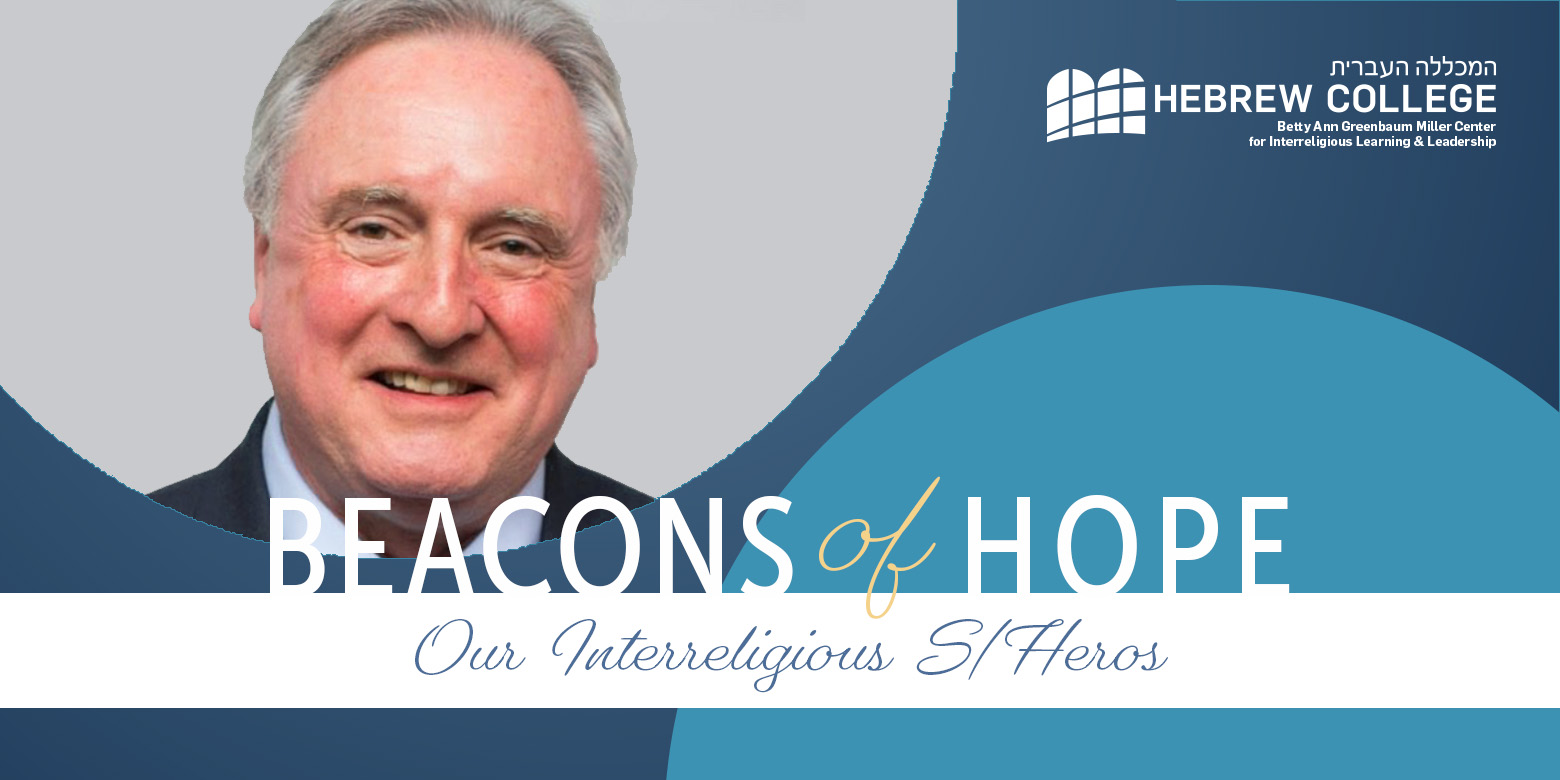Beacons of Hope: Our Interreligious S/Heroes Beacons of Hope: Our Interreligious S/Heroes – Bob Stains

Each month, we honor an individual whose commitment aligns with the bridge-building vision of the Miller Center, embodying values of inclusivity, justice, and compassion. For February, we shine a light on Bob Stains, founder and principal of Bob Stains and Associates Conflict Transformation, as our Beacon of Hope.
In the midst of the extreme polarization we are experiencing across the country and around the world, the importance of empathy and a willingness to see and understand one another is painfully evident and urgently needed. How to engage in difficult or “courageous conversations” is a core interreligious leadership skill that we seek to cultivate within all of our programs. And that is where this month’s Beacon of Hope comes in. Bob Stains is a wise facilitator and trainer who has worked with all of our interreligious leadership cohorts—high school, undergraduate, graduate, emerging professionals—introducing them to the science and art of engaging across difference.
How did you choose your work as a facilitator and trainer?
I really understand my work as helping people become more fully human to one another.
I started out as a therapist. My first work was in short term mental health facilities. As I was working there I noticed what my colleagues and I referred to as a “revolving door syndrome”. People would come in and begin to heal, and then return to their environment, which was supporting their dysfunction rather than their healing. This moved me toward studying systems, looking at how to shift environments.
Fast forward several years, I was teaching mental health in family homeless shelters where I was often the only man and usually the only white person. And about four years into that work I encountered the Public Conversations Project (now called Essential Partners). This was a totally different way of engaging difference than I’d ever experienced before. The project was started by family therapists who had experience working with families locked in cycles of conflict. They had noticed that if you changed the context and conversation, it broke old patterns and invited new ones to take root.
I was completely blown away by my first encounter with PCP, because of two things. One, I was encouraged to claim my particular identities and speak from my location and life experience. Two, our facilitator asked us to turn to someone who disagreed with us on abortion for a lean, quick, ten-minute conversation. And because of the way it was structured, it was the first productive conversation I’d ever had with someone I disagreed with on the issue. That was 1994. I soon signed on with Public Conversations and thirty years later, here I am.
What is the most fulfilling part of doing what you do?
I come to this work from a spiritual perspective. I describe it in different ways depending on my context. One Jewish teaching I find helpful is the Kabbalistic notion that the original vessels of creation shattered long ago and that “sparks” of divinity can be discovered in all of life. This includes uncovering sacred light in our fellow human beings and in our selves. Inspired by great mystics like Rabbi Nachman of Bratslav and others (as taught to me by my colleague Rabbi David Jaffe), I see my work as enabling people to be more open or permeable to one another and to God’s presence.
What is the most challenging part of doing what you do?
I see similar challenges doing this work as there are for clergy or therapists. I have to bring the same heart and same conviction to everyone I work with, including people who hold views I might not agree with. Or people who I might not like so much. My job is to bring the same heart and same presence to anyone. I wrestle with that all the time.
The other big challenge is managing projection and transference. Everyone’s got an idea who they think I am based on my identities as an older white man. So that’s an obstacle, being able to somehow be me, but not take on the other stuff folks might project on to me. And this isn’t only me, this happens with anyone doing this work. That’s one of the reasons I created my mentoring and coaching program, because no one taught me about transference and projection as experienced by mediators and facilitators. Luckily, I learned about it as a therapist, and I want to bring those skills to mediators.
And then, of course, in some circles there is a great antipathy to dialogue. On the right there can be a suspicion that this facilitated dialogue us just a Trojan horse for liberal ideas. On the left, it can be more of a cynical idea that dialogue is just a tool of the oppressor. A steam valve. That the oppressor brings a facilitator like me so people can be heard while things don’t change.
You have worked with many Hebrew College and Miller Center cohorts at the graduate, college, and high school level. What have you learned from this experience?
Like so many other people I encounter in my work, folks at Hebrew College—from the Dignity Project onward—are grappling with their commitments to social justice. But in my time at HC, I have consistently found that the passion for human connection matches or even exceeds the passion for social justice. I think that is unusual and something the Miller Center and the College as a whole works hard to foster among folks with different, sometimes radically different, perspectives. And my work is all about relationships.
In fact, one of the reasons I wanted to raise my children in the Jewish tradition, is the attention to relationships. Family relationships, interpersonal relationships, etc. Relationships are more important than right-thinking or right-theology. In my experience in the Jewish world the question tends to be, “Do we live right?” not, “Do we believe right?”

